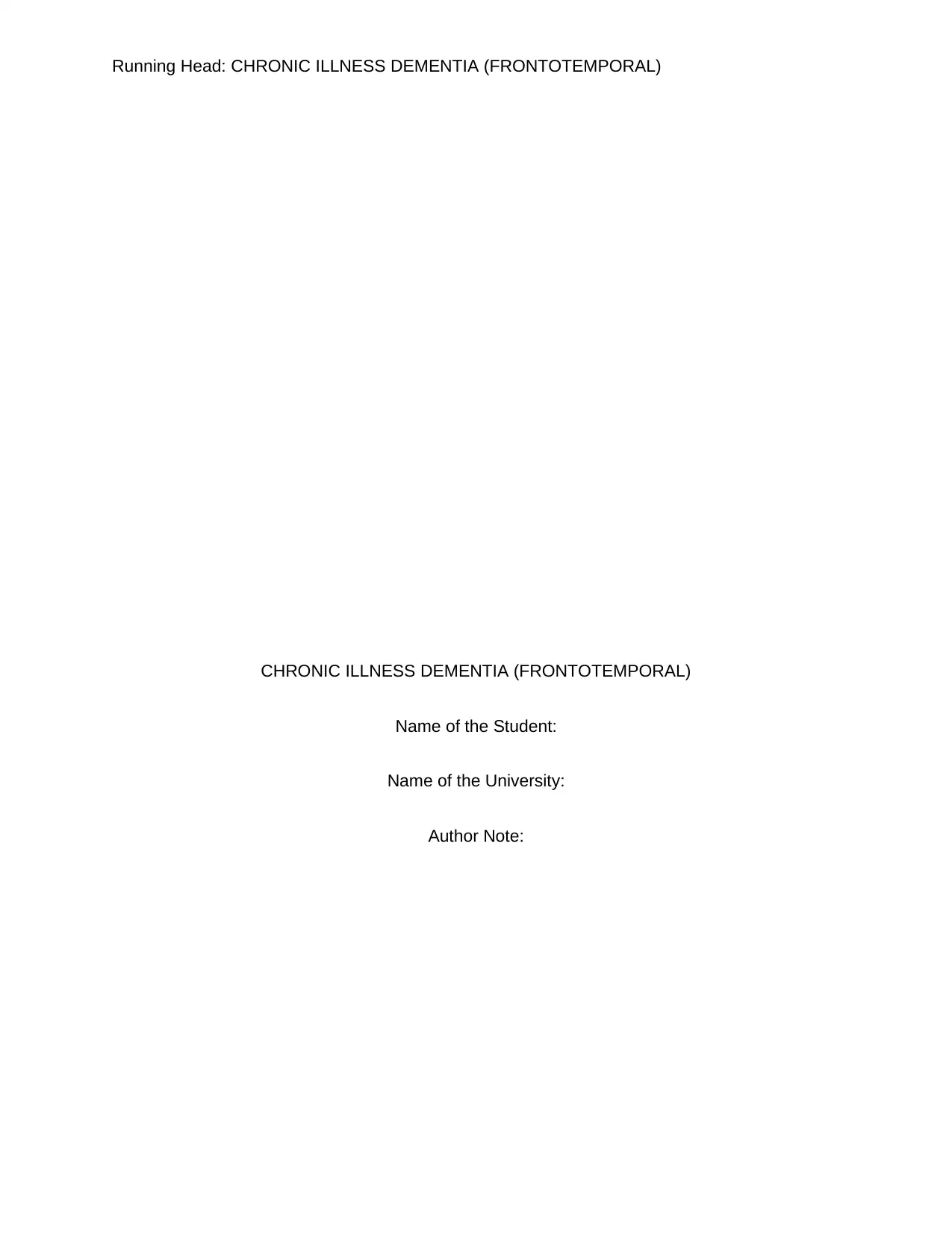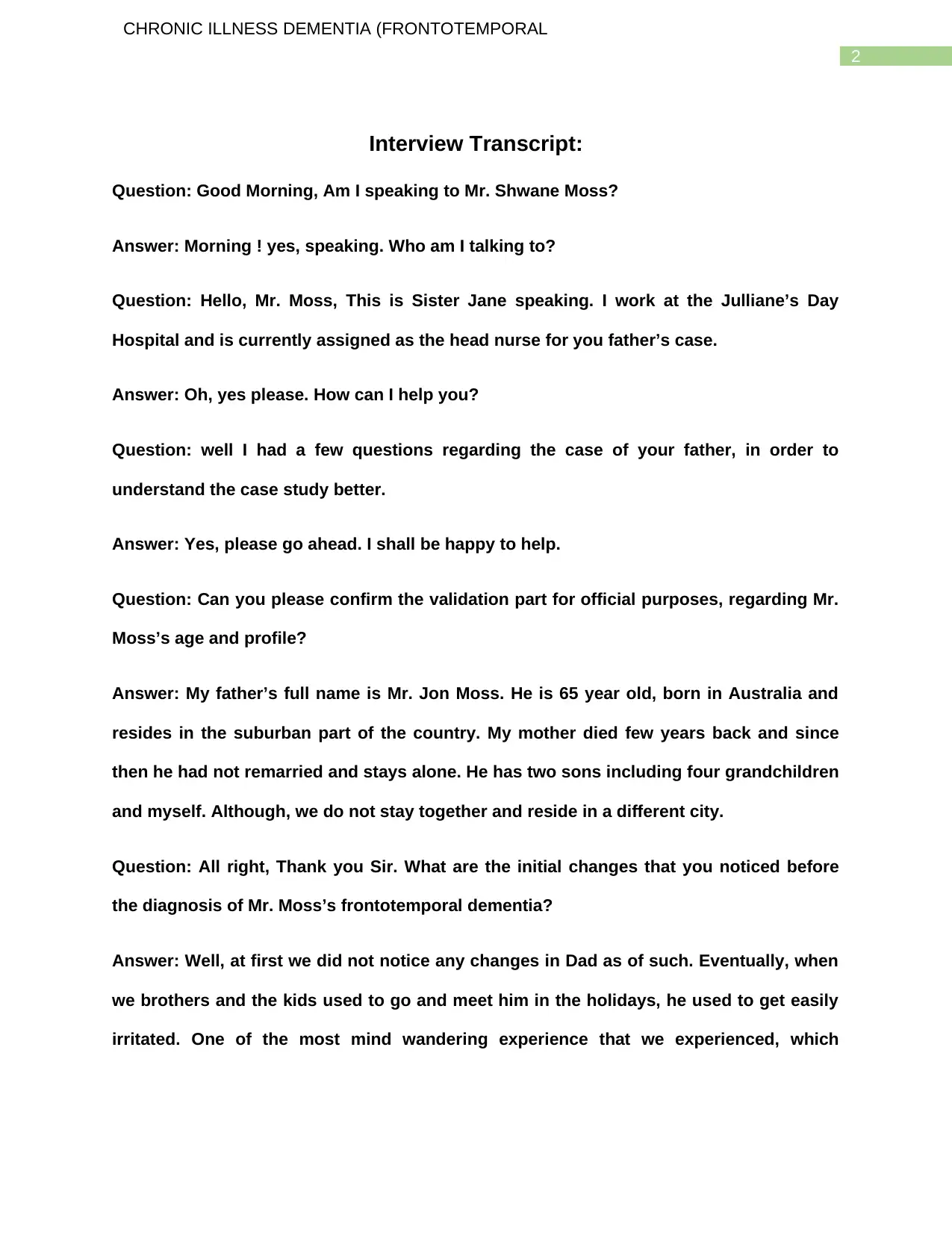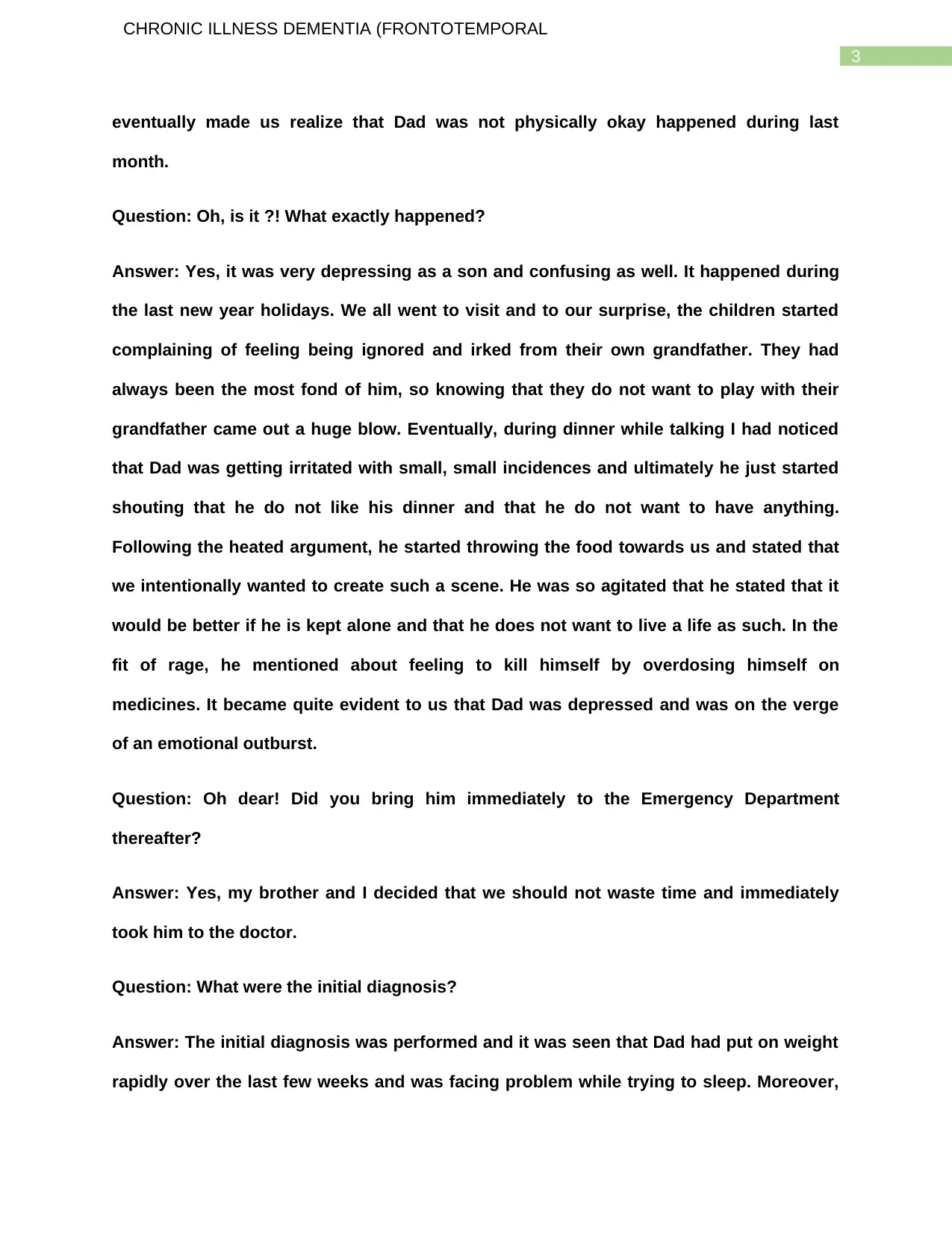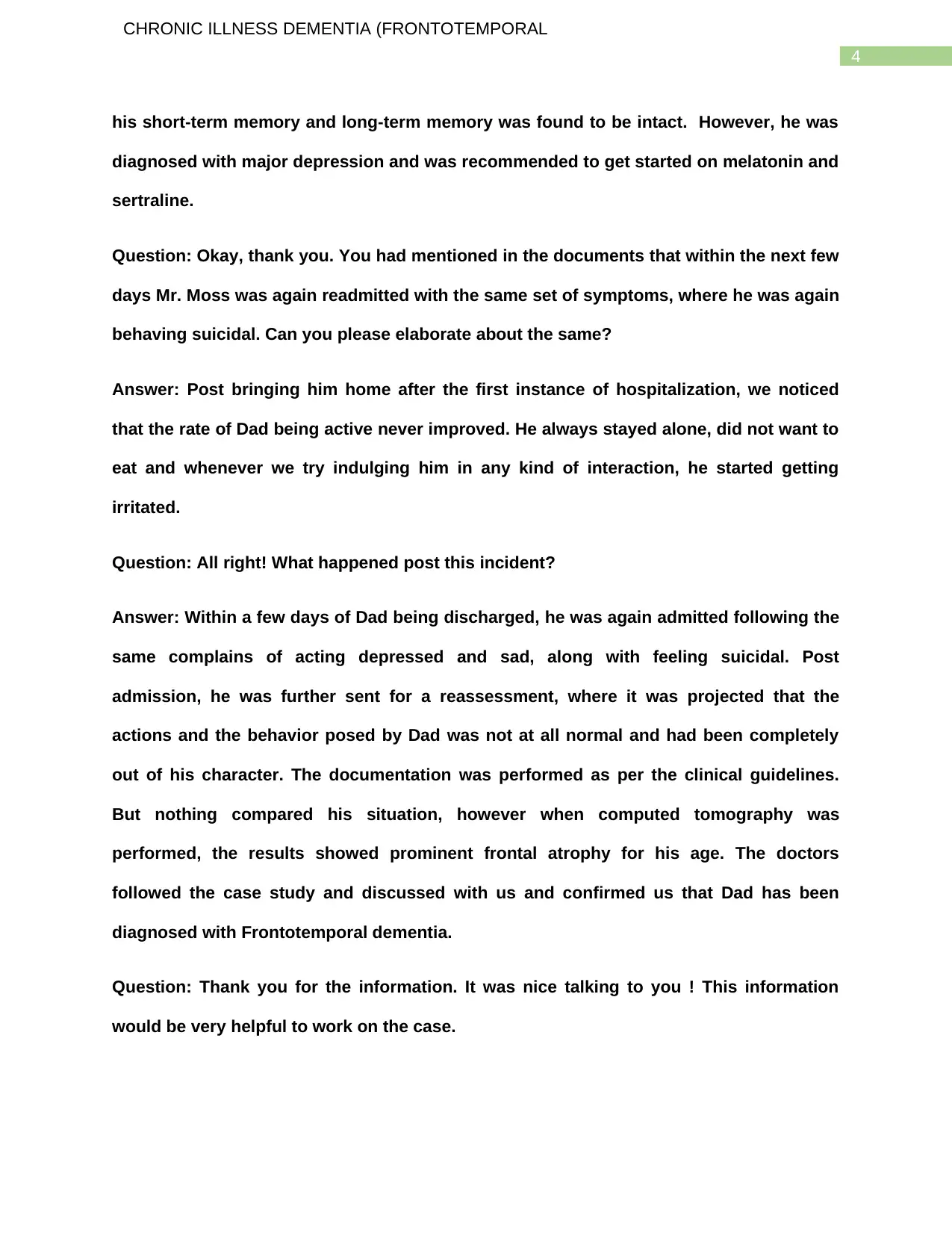Nursing Assignment: Chronic Illness Dementia (Frontotemporal) Report
VerifiedAdded on 2022/08/18
|4
|948
|8
Report
AI Summary
This report presents a case study analysis of a 65-year-old male, Mr. Jon Moss, diagnosed with frontotemporal dementia (FTD). The report begins with an interview transcript detailing Mr. Moss's experiences, including changes in behavior, initial misdiagnoses, and the eventual diagnosis of FTD. The provided information is used to examine the impact of FTD on the patient's life, including the effects on his family and the challenges faced by the patient. The report incorporates the nursing perspective, discussing the patient's health status, pathophysiology, and pharmacological interventions. The report will also focus on person-centered care planning using Clinical Reasoning (CRC) stages. It highlights the importance of understanding the patient's history, symptoms, and the progression of the illness. The report explores the impact of the illness on the patient's mental health and behavior, including depression and suicidal ideation. The report also discusses the importance of clinical reasoning in the context of dementia care. The report aims to provide a comprehensive understanding of FTD and its implications for patient care.
1 out of 4





![[object Object]](/_next/static/media/star-bottom.7253800d.svg)